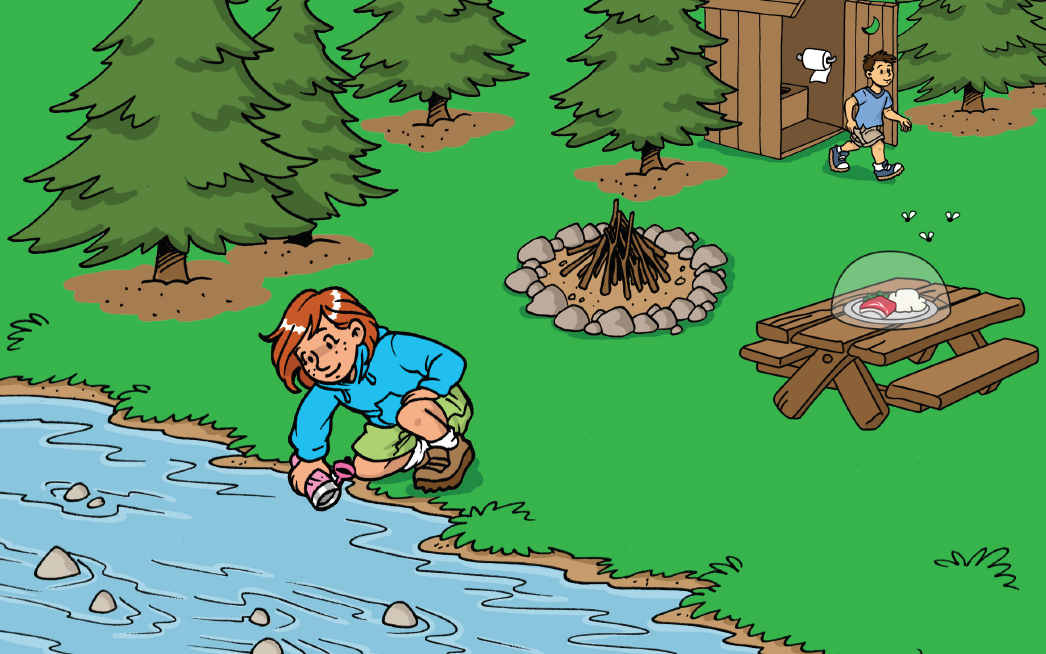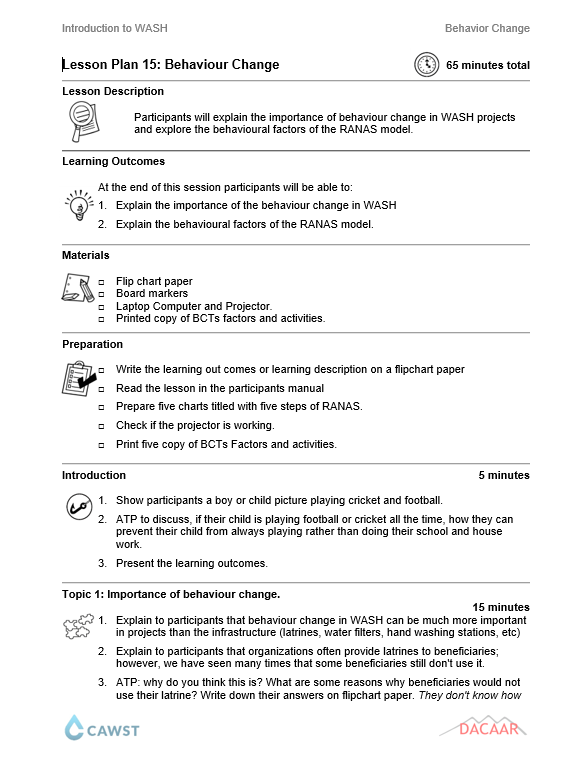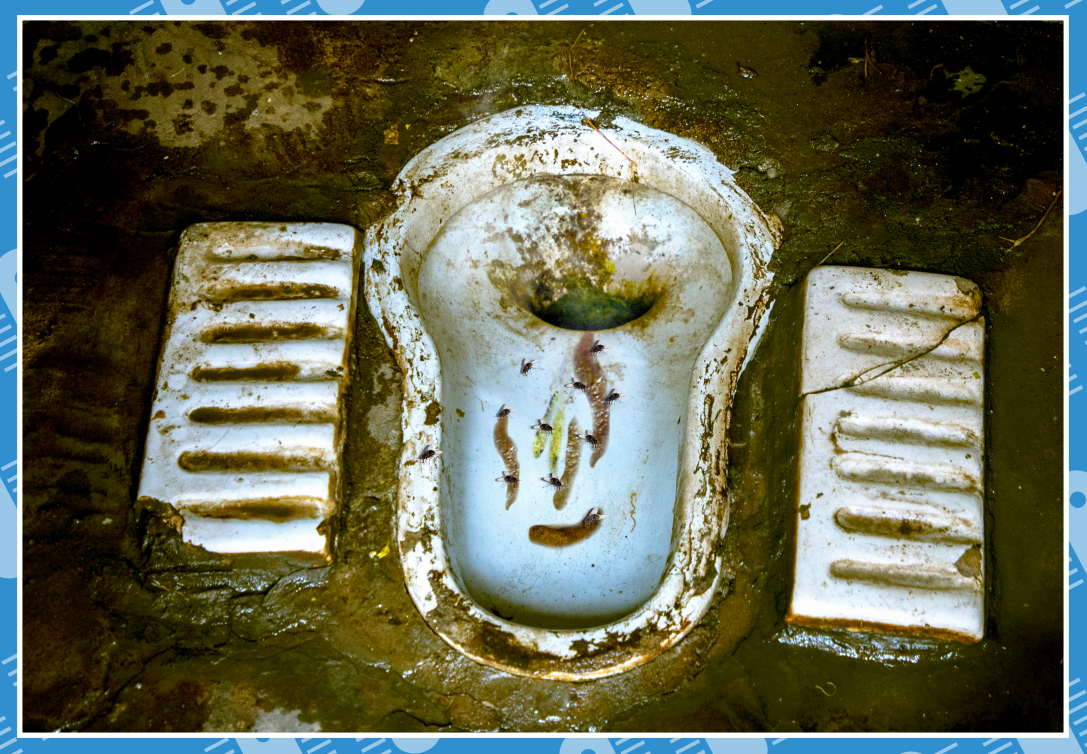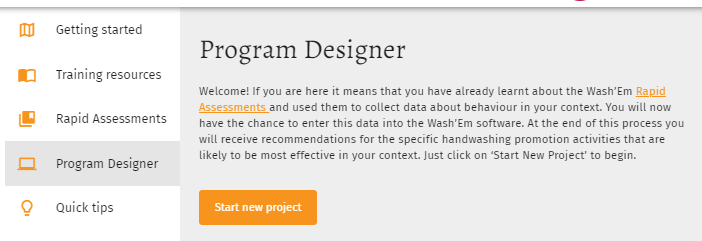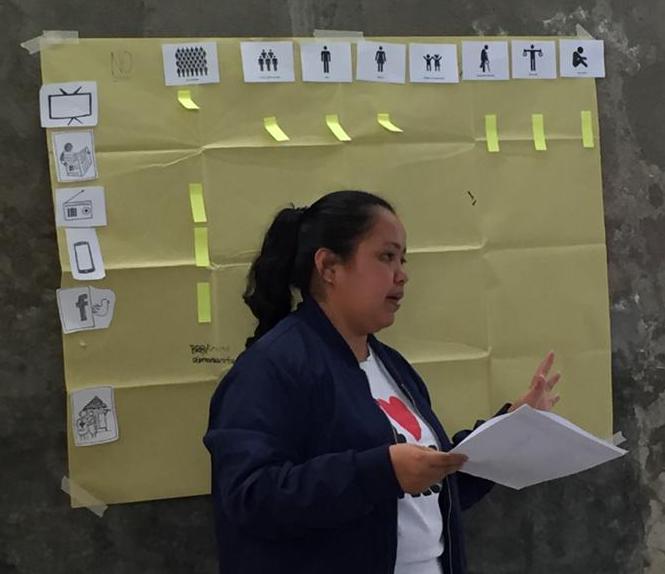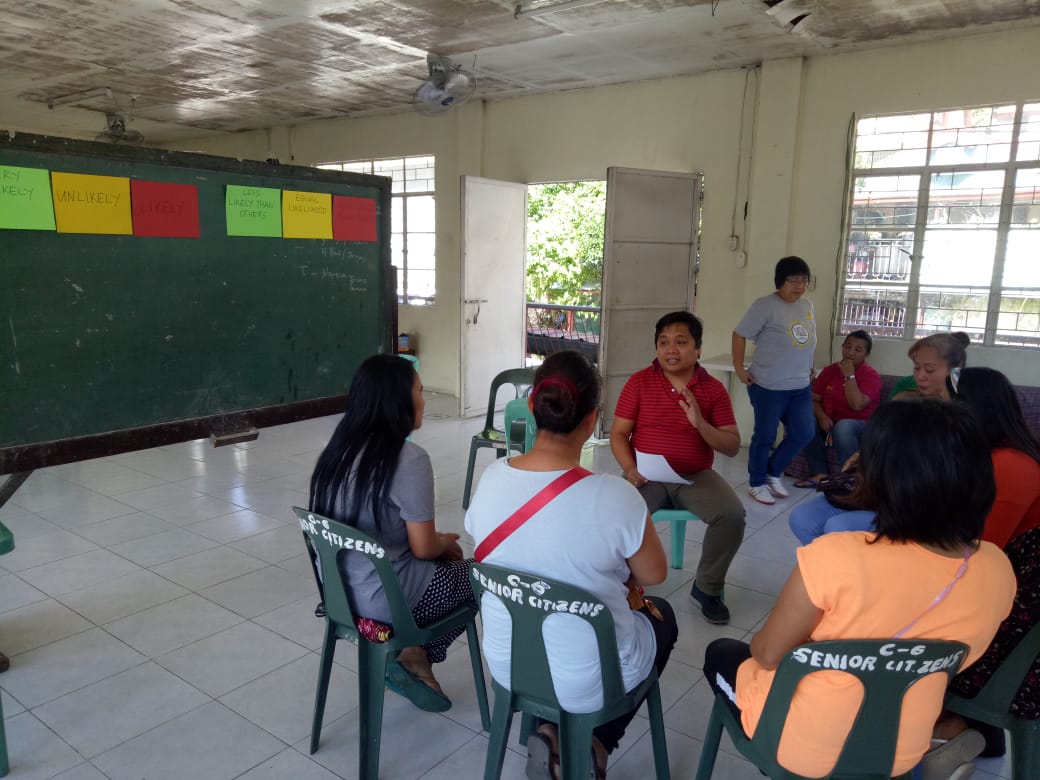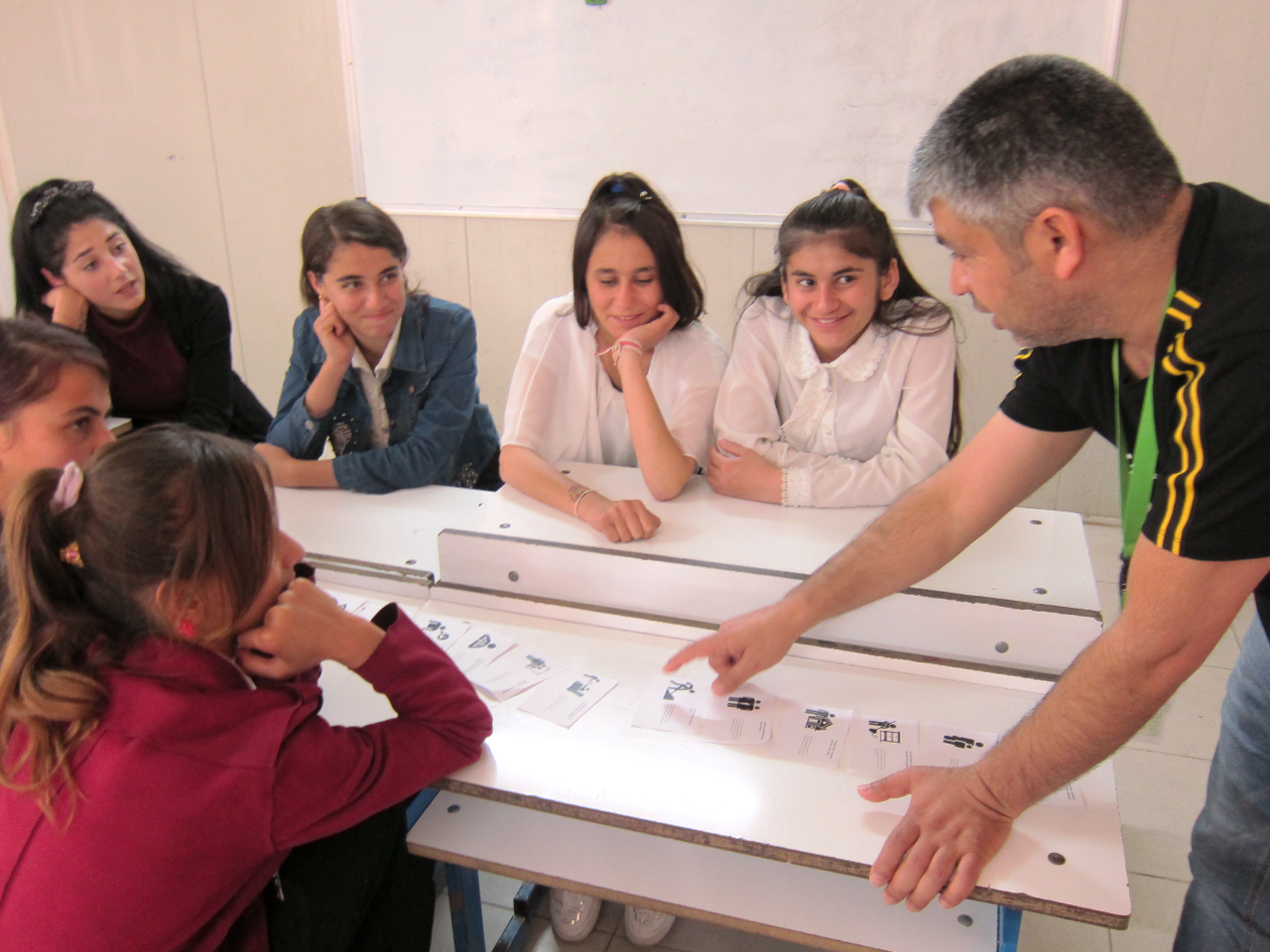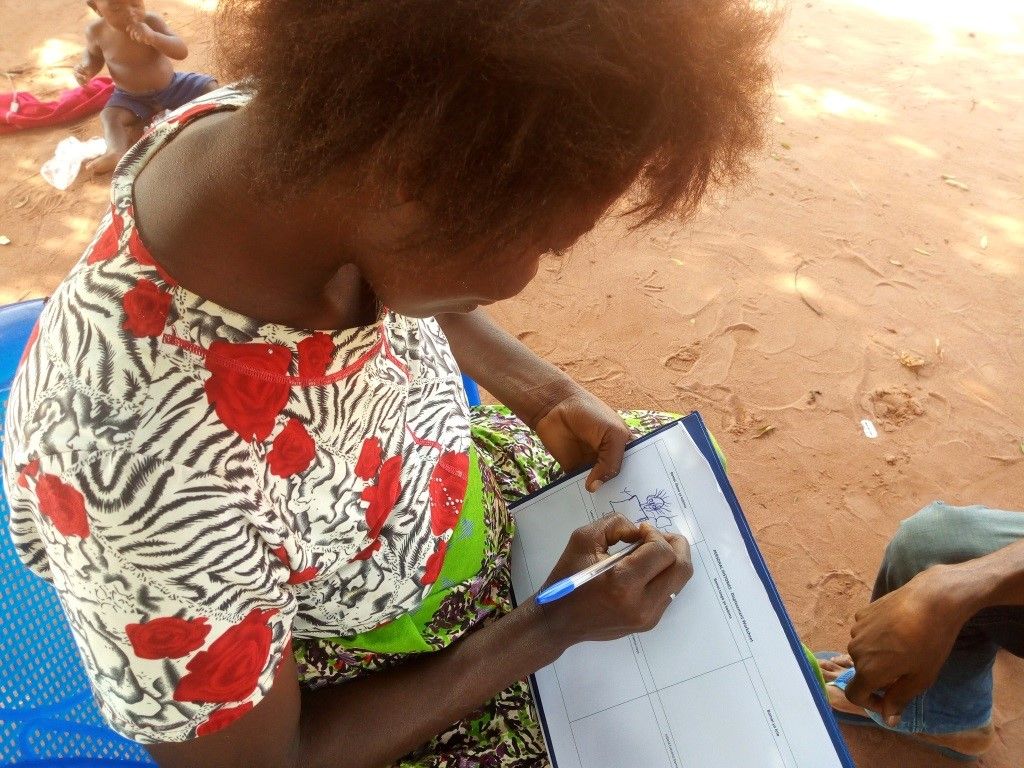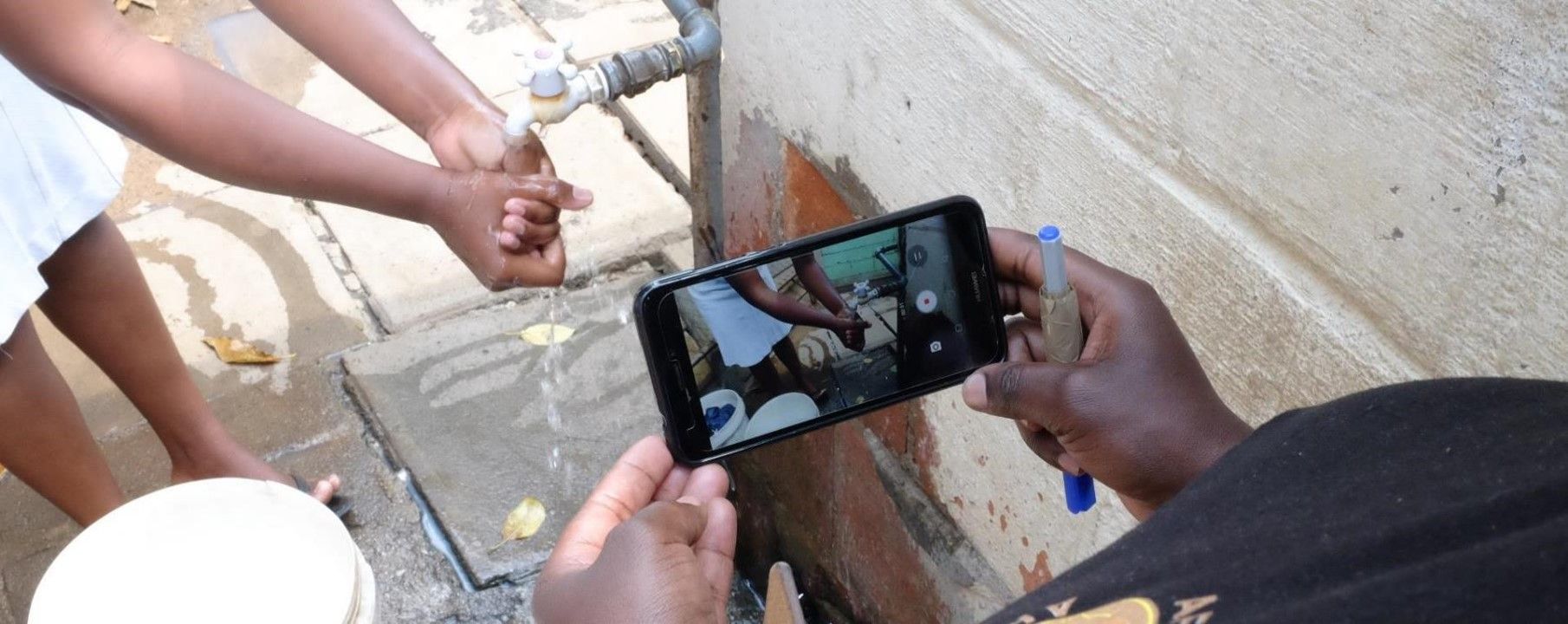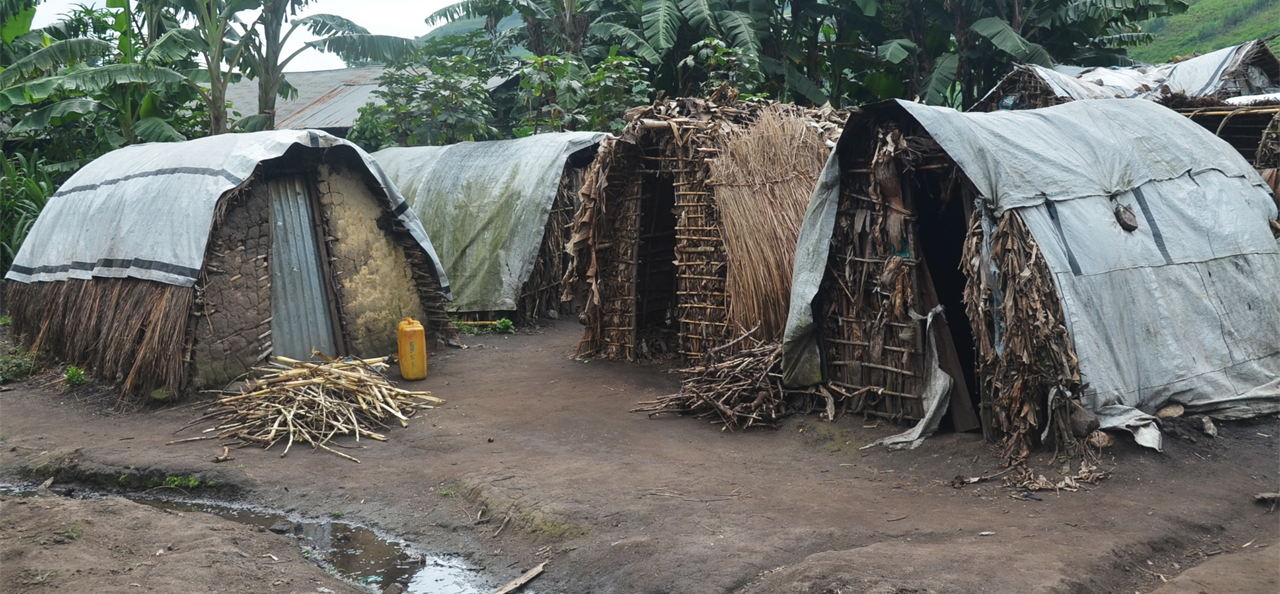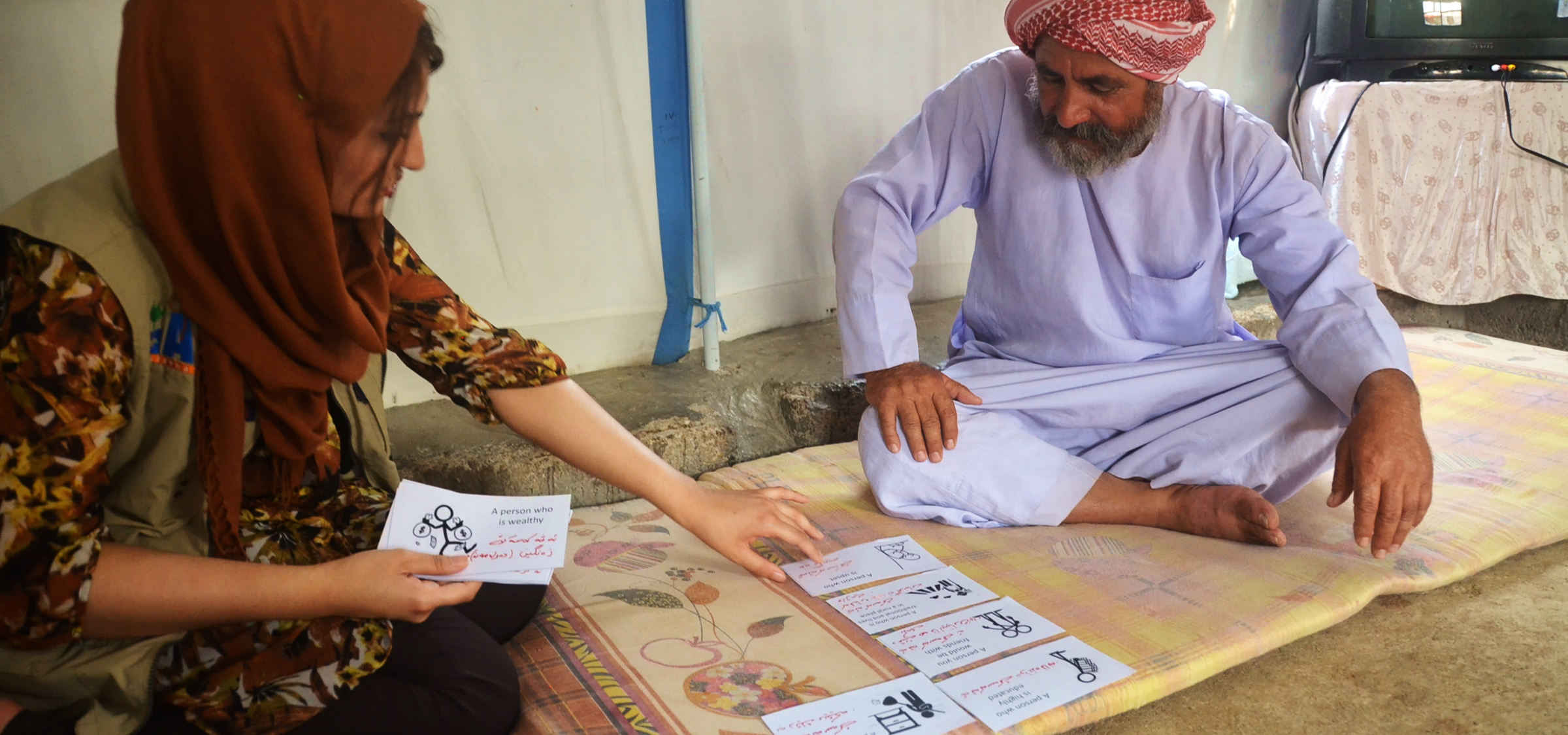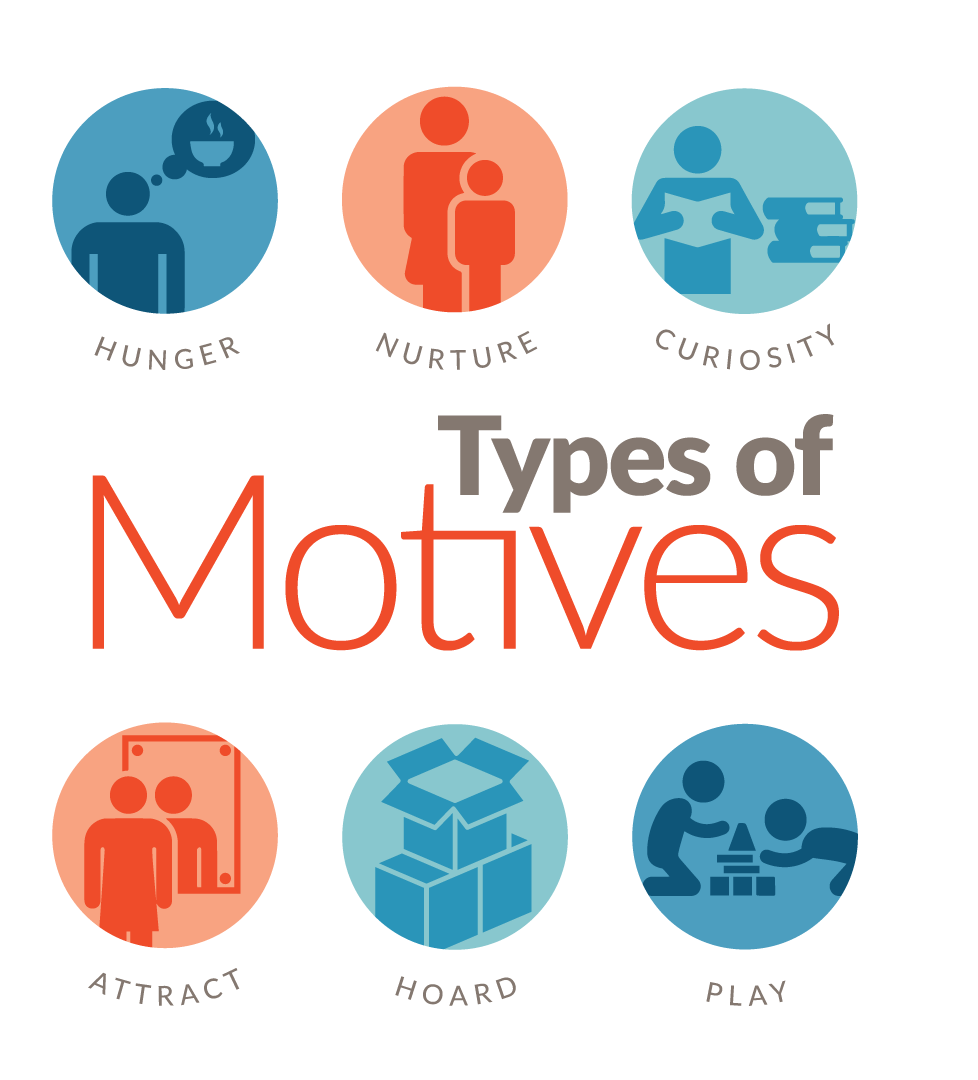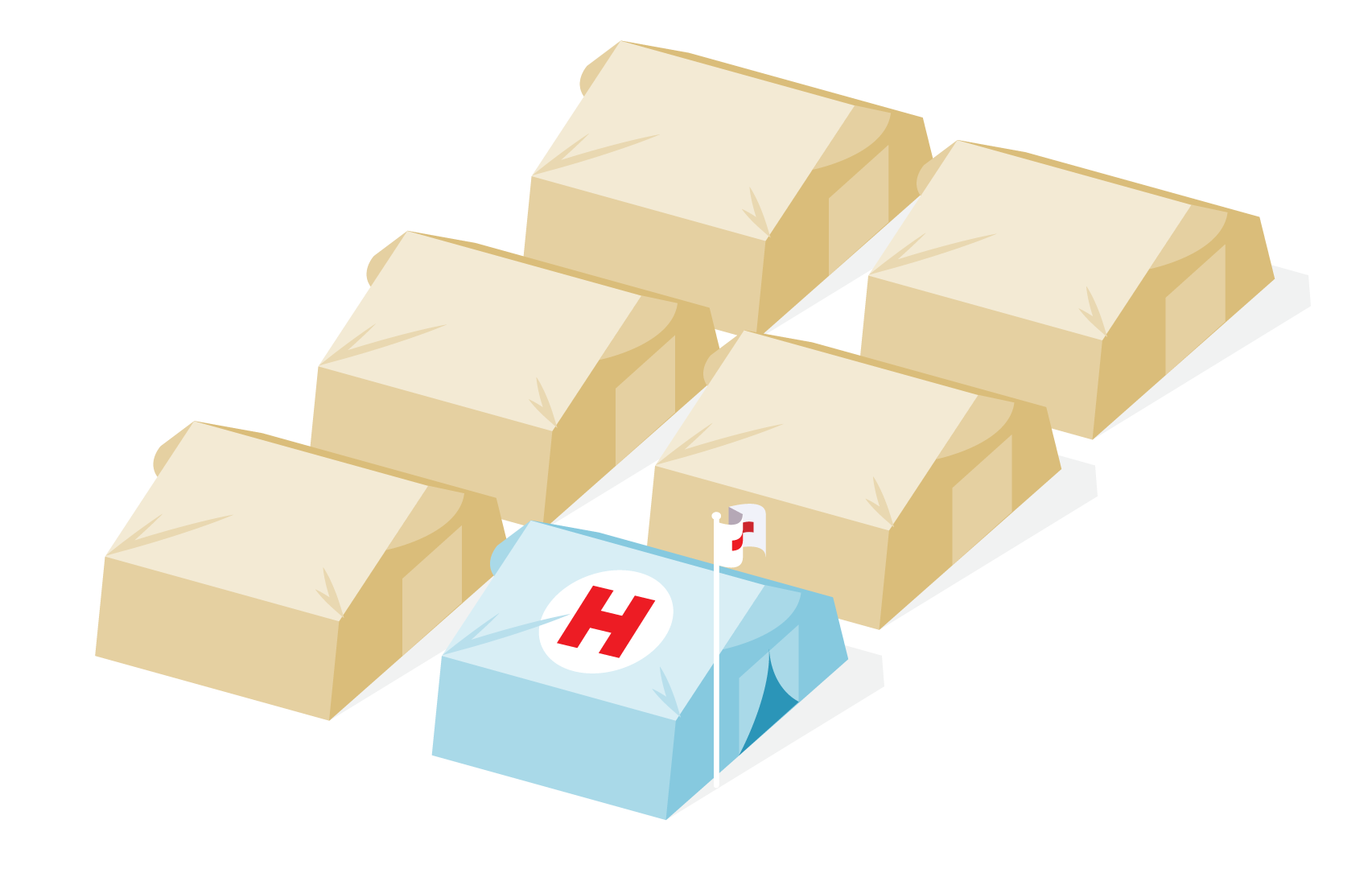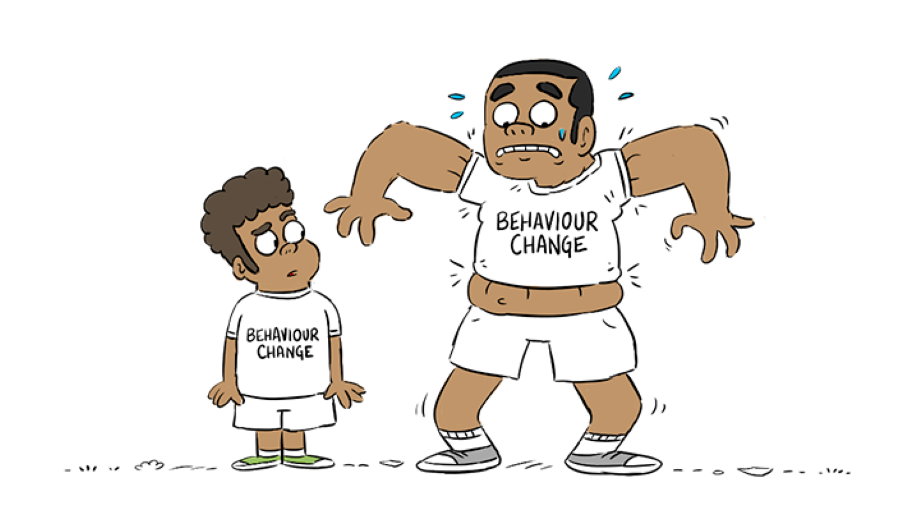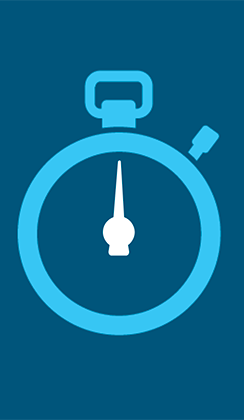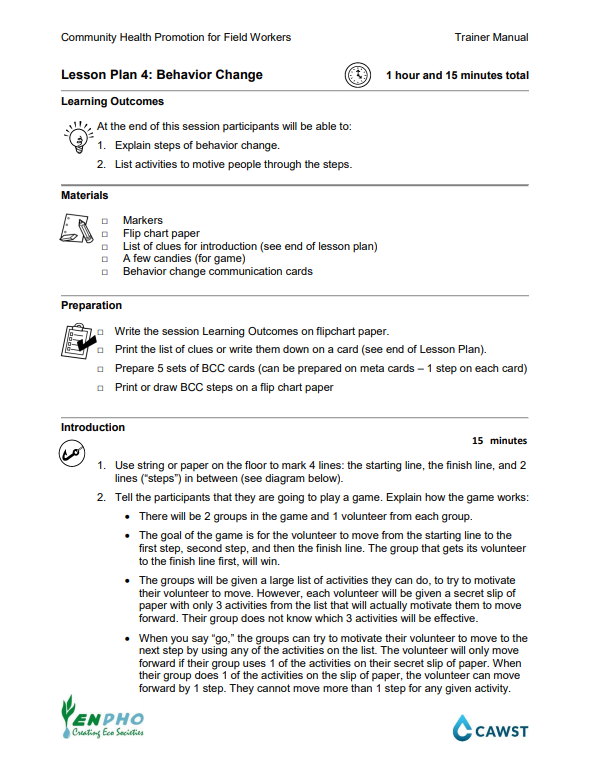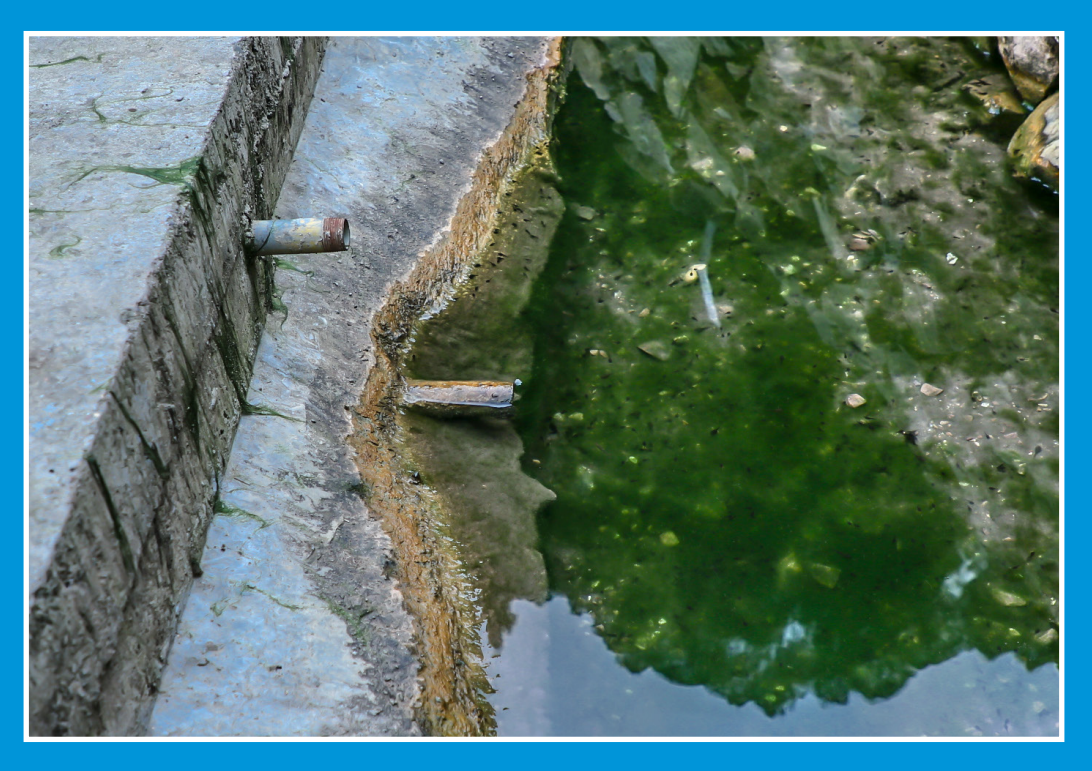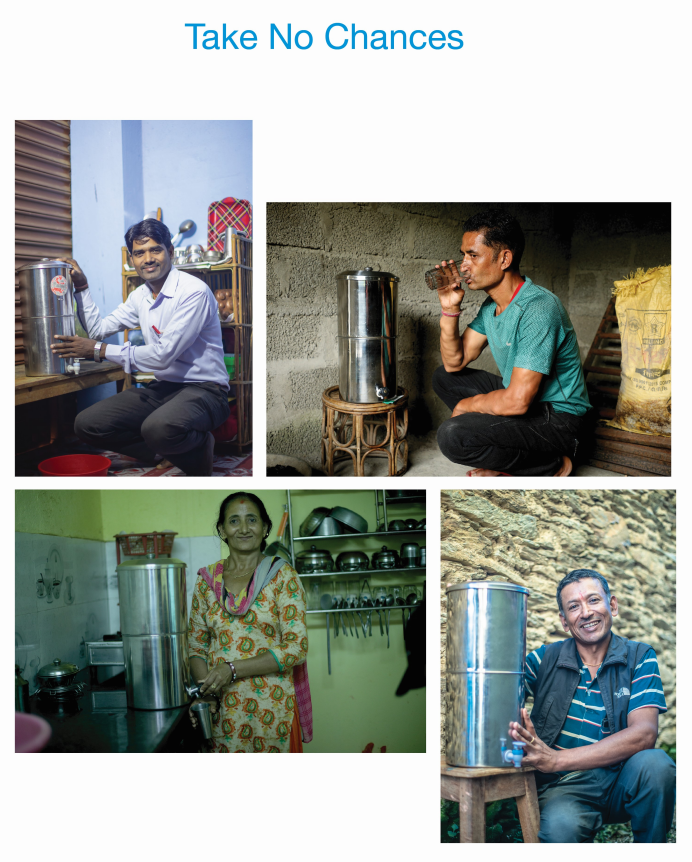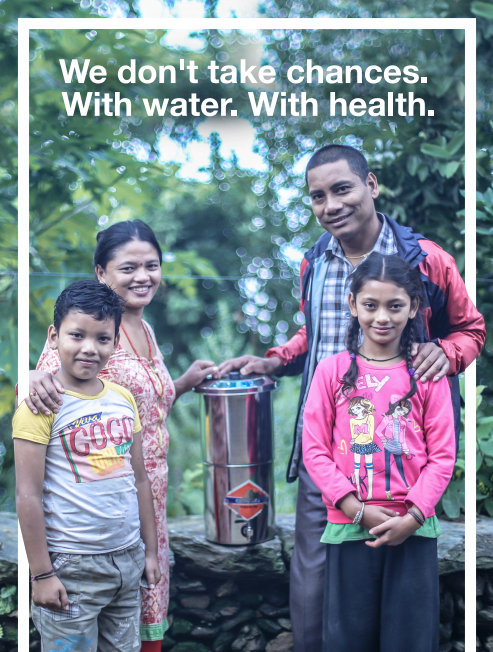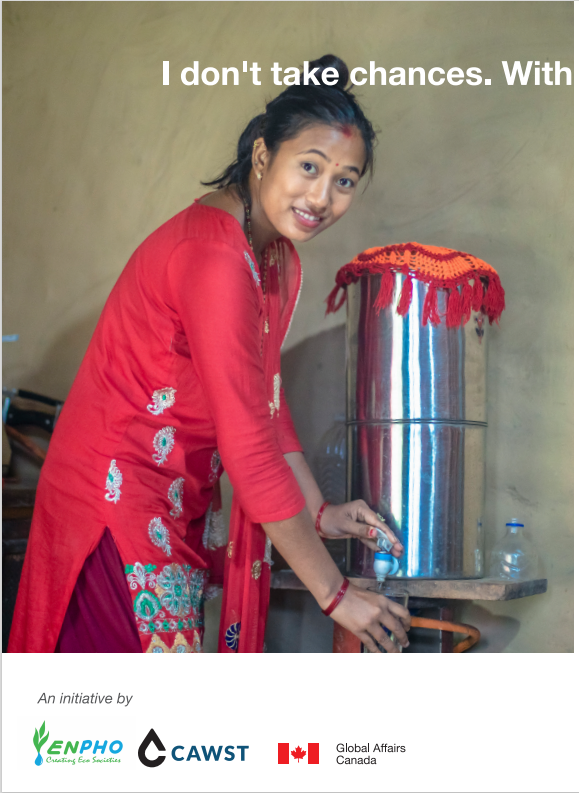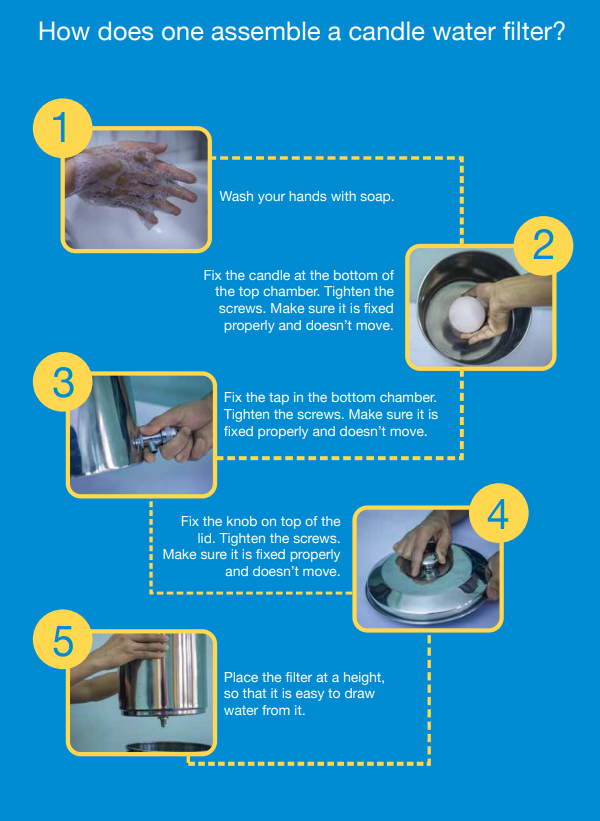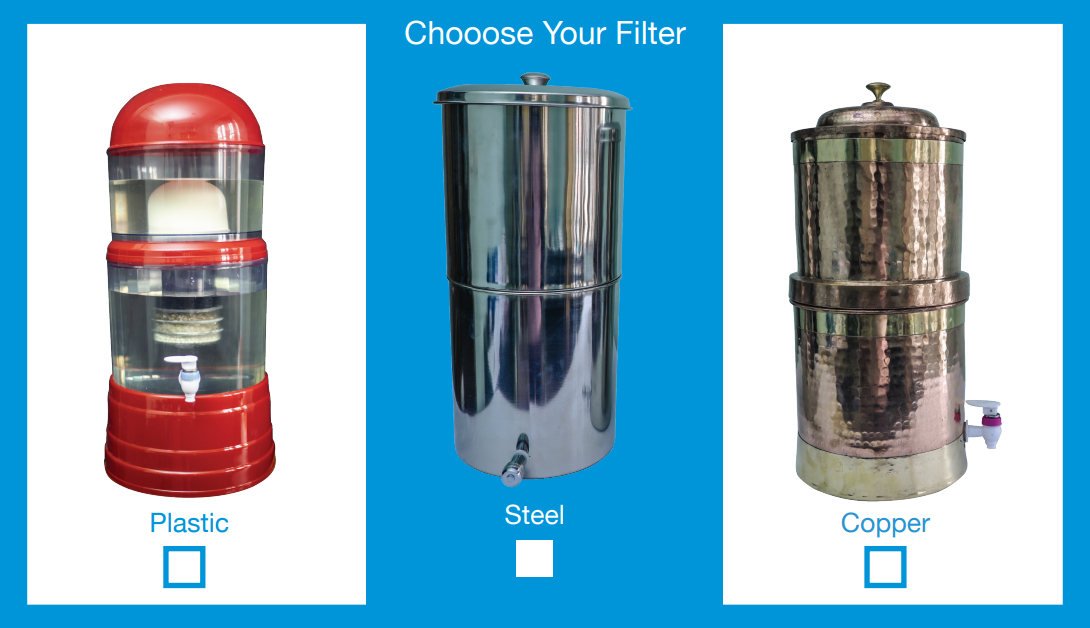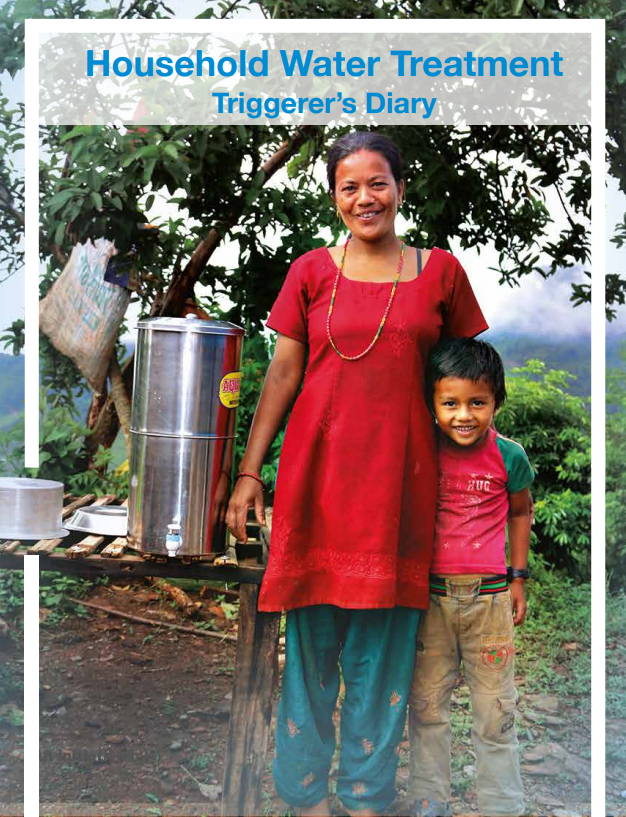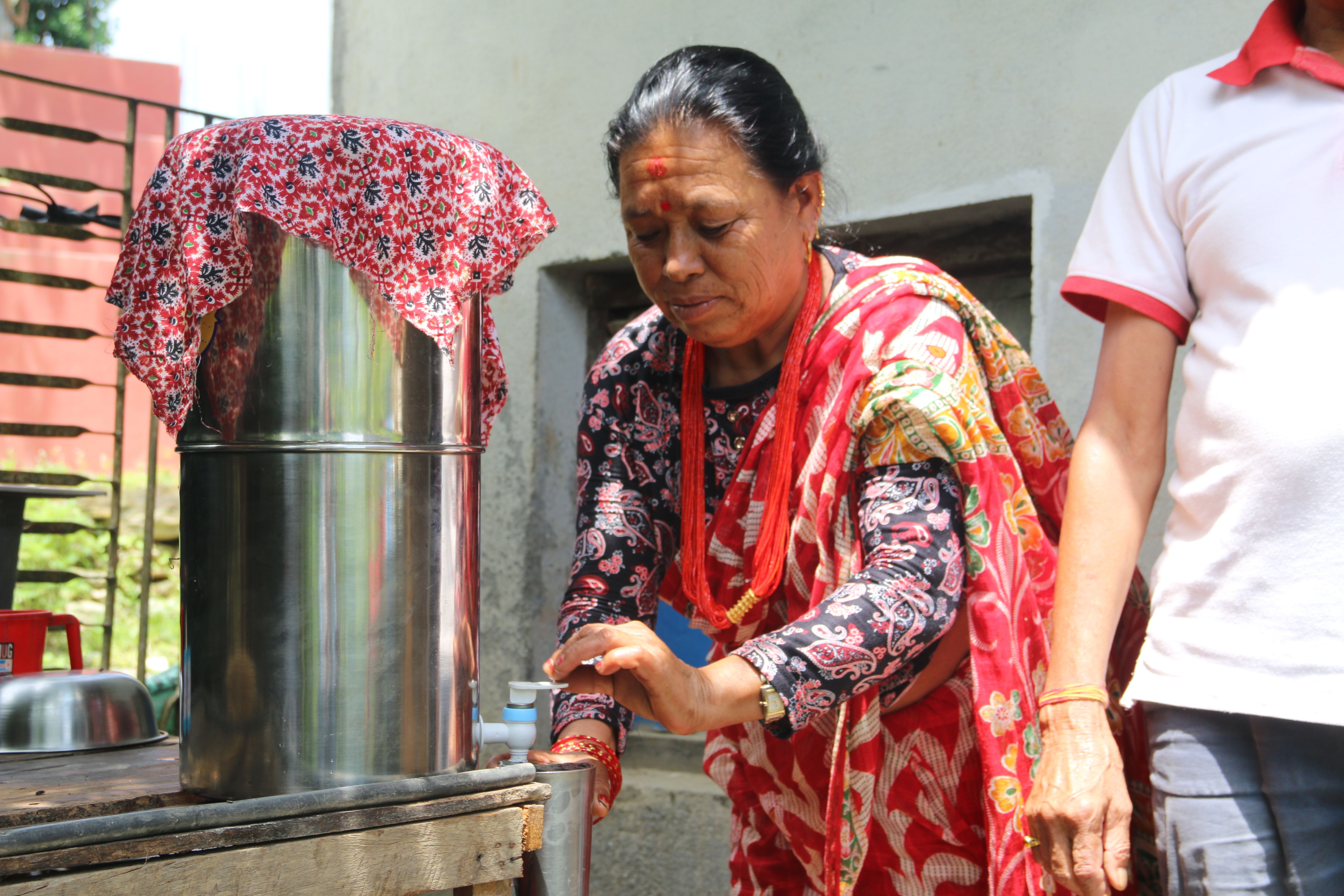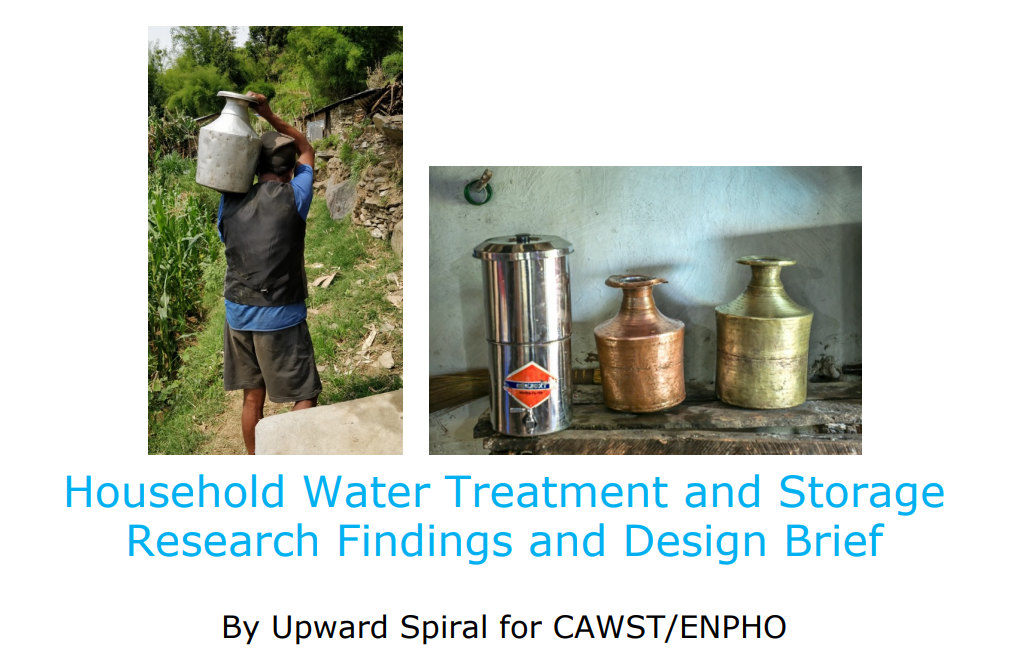Explore Behaviour Change
WASH Behaviours
This hands-on card game was designed to use with youth in North America and Europe. It helps participants understand how local water, sanitation, and hygiene practices impact health and the environment.
Languages
English
Games and Activities
Use these activities and games to facilitate group understanding of water, sanitation, and hygiene.
Languages
French
English
Spanish
nt
Household Water Treatment Program Design Job Aids
This collection includes job aids that will help you to design, implement, monitor and evaluate your household water treatment program. These practical resources are easy to use and include tools and templates for budgeting, reporting, needs assessment, gap analysis and more.
Languages
English
French
Spanish
Arabic
Behaviour Change Needs Assessment
This tool aims to help your program with its formative research by defining the behaviour it wants to change and supporting the program team to gather information.
Languages
English
Spanish
French
Arabic
Happy Toilet World of Toilets Activity
Use this activity to show how toilets look around the world. This activity was used as part of a behaviour change intervention to promote cleaning and regular toilet maintenance in Nepal.
Languages
English
Behaviour Change - Lesson Plan (Intro to WASH)
Participants will explain the importance of behaviour change in WASH projects and explore the behavioural factors of the RANAS model.
Languages
English
Happy Toilet Sticker
This sticker was given to households to celebrate their "Happy Toilet". It was used as part of a behaviour change intervention to promote cleaning and regular toilet maintenance in Nepal.
Languages
English
Happy Toilet Process Poster
This poster was used to show the process for achieving "Happy Toilets". It was used as part of a behaviour change intervention to promote cleaning and regular toilet maintenance in Nepal. The intervention is called, "Happy Toilets."
Languages
English
Happy Toilet Rating Cards
These rating cards were used as part of a behaviour change intervention to promote cleaning and regular toilet maintenance in Nepal. The intervention is called, "Happy Toilets."
Languages
nt
Happy Toilets Facilitator Diary
This facilitator diary was used during a behaviour change intervention to promote cleaning and regular maintenance of toilets in Nepal. The intervention is called, "Happy Toilets."
Languages
English
Happy Toilets in Nepal Facilitator Toolkit
This facilitator (triggerer) toolkit was used for a behaviour change intervention to promote cleaning and regular toilet maintenance in Nepal. The intervention is called, "Happy Toilets."
Languages
English
Toilet Cleaning in Nepal Formative Research and Design Brief
Review the formative research findings and design brief for a behaviour change intervention promoting the behaviours to regularly clean and maintain toilets in Nepal. The intervention is called, "Happy toilets!"
Languages
English
Wash'Em: Using the Software
In this module, you'll learn how to navigate the Wash'Em website and use the Program Designer to generate program recommendations.
Languages
English
Wash'Em: Logistics
This module highlights the details you'll need to take care of before you leave for your community visit.
Languages
English
Wash'Em: Touchpoints
This tool will help you identify channels of communication so that you can prioritize which ones are likely to be the most effective in reaching your population.
Languages
English
Wash'Em: Disease Perception
The Disease Perception tool helps you to understand people’s perceptions of the disease you are interested in.
Languages
English
Wash'Em: Motives
The Motives tool will help you to identify what is driving handwashing behaviour, or preventing it, in your context.
Languages
English
Wash'Em: Personal Histories
The Personal Histories tool is used to generate a broad understanding about the experiences of populations affected by crisis.
Languages
English
Wash'Em: Handwashing Demonstrations
The Handwashing Demonstrations tool allows you to generate quick insights into how a person’s home and community environment impact their handwashing practices.
Languages
English
Wash'Em: The Context
For humanitarians that are not currently working in a crisis situation, this e-learning module provides three realistic contexts to practice with.
Languages
English
What is Wash'Em?
Hygiene promotion in emergencies has typically been done by distributing hygiene kits, or educating people about disease transmission. Evidence shows that these approaches alone are insufficient to change handwashing behavior. This learning module introduces you to the the Wash'Em process and the tools you will use to help you design innovative, context-specific hygiene programs.
Languages
English
Types of Motives
Learn what motives are, familiarize yourself with the different motives that are relevant to WASH, and see how motives can be used to impact your future behaviour change intervention.
Languages
English
French
Spanish
Arabic
Explore the Behaviour Change Checklist
Complete the challenge and become familiar with this useful tool for organizing assessment information for behaviour change interventions.
Languages
English
French
Spanish
Arabic
Behaviour Change Challenge
Challenge yourself to change hygiene behaviours linked to Cholera transmission in this simulated scenario.
Languages
English
Spanish
French
Arabic
Behaviour Change Myths
Explore different behaviour change myths in this lighthearted teaser - that leads you to different behaviour change resources.
Languages
English
Spanish
French
Arabic
Behaviour Change Two Minute Tools for Rapid Assessment
These videos will introduce you to a few rapid assessment tools that you can use when seeking to create a context-specific behaviour change intervention.
Languages
English
Spanish
French
Arabic
Behaviour Change Checklist
This tool will help you to define the behaviour you want to change and ask questions to help you deepen your understanding of your target population and the context where the behaviour takes place.
Languages
French
English
Spanish
Arabic
Learn About Behaviour Change
In this collection you will find online learning activities and job aids that will help you to incorporate behaviour change into WASH program design.
Languages
English
Spanish
French
Arabic
Introduction to WASH
This is an introductory level workshop that was co-developed with our partners in Afghanistan at DACAAR. This workshop is for those who are just starting to work in the Water, Sanitation, and Hygiene sector. It covers the basic of WASH which include topics of disease transmission, household water treatment, solid waste management, vector control, sanitation, hygiene, and behaviour change.
Languages
English
Behavior Change Lesson Plan
This is a lesson plan that explains steps of behaviour change and activities to motivate people through these steps.
Languages
English
Contamination Cards for Ceramic Candle Filter Promotion in Nepal
These contamination cards were used during a behaviour change intervention to promote the behaviours to purchase, use, and maintain a ceramic candle filter in Nepal. The intervention is called, "Take no chances!"
Languages
nt
Ceramic Candle Filter Promotion in Nepal Affiliation Poster
This poster was used to target the motive "affiliation" during a behaviour change intervention to promote the behaviours to purchase, use, and maintain a ceramic candle filter in Nepal. The intervention is called, "Take no chances!"
Languages
English
Ceramic Candle Filter Poster for Shops and Villages in Nepal
This ceramic candle filter poster for villages and shops was used during a behaviour change intervention to promote the behaviours to purchase, use, and maintain a ceramic candle filter in Nepal. The intervention is called, "Take no chances!"
Languages
English
Ceramic Candle Filter Poster for Health Posts in Nepal
This ceramic candle filter poster for health posts was used during a behaviour change intervention to promote the behaviours to purchase, use, and maintain a ceramic candle filter in Nepal. The intervention is called, "Take no chances!"
Languages
English
Ceramic Candle Filter Instructional Leaflet
This ceramic candle filter instructional leaflet includes basic operation and maintenance information. It was used during a behaviour change intervention to promote the behaviours to purchase, use, and maintain a ceramic candle filter in Nepal. The intervention is called, "Take no chances!"
Languages
English
Ceramic Candle Filter Leaflet
This ceramic candle filter leaflet to select an appropriate filter was used during a behaviour change intervention to promote the behaviours to purchase, use, and maintain a ceramic candle filter in Nepal. The intervention is called, "Take no chances!"
Languages
English
Ceramic Candle Filter Promotion in Nepal Facilitator Diary
This facilitator diary was used during a behaviour change intervention to promote the behaviours to purchase, use, and maintain a ceramic candle filter in Nepal. The intervention is called, "Take no chances!"
Languages
English
Ceramic Candle Filter Promotion in Nepal Facilitator Toolkit
This facilitator (triggerer) toolkit was used for a behaviour change intervention promoting the purchase, use, and maintenance of ceramic candle filter in Nepal. The intervention is called, "Take no chances!"
Languages
English
Ceramic Candle Filter Promotion in Nepal Formative Research and Design Brief
Review the formative research findings and design brief for a behaviour change intervention promoting the behaviours to purchase, use, and maintain a ceramic candle filter in Nepal. The intervention is called, "Take no chances!"
Languages
English
Take No Chances: Promoting Ceramic Candle Filters in Nepal
This collection of materials includes trainer tools and resources to promote the behaviours to purchase, use, and maintain a ceramic candle filter in Nepal. The intervention is called, "Take no chances!"
Languages
English
nt
Learn about Wash'Em
The Wash’Em process involves using 5 rapid assessment tools to understand handwashing behaviours during a crisis. You then enter the findings into the Wash’Em software for tailored program recommendations.
Languages
English
Happy Toilets: Promoting Toilet Cleaning and Maintenance in Nepal
This behaviour change intervention promoted cleaning and regular maintenance of toilets in Nepal. The intervention is called, "Happy Toilets."
Languages
English
nt
About CAWST
CAWST is a Canadian charity and licensed engineering firm. We address the global need for safe drinking water and sanitation by building local knowledge and skills on household solutions people can implement themselves.
